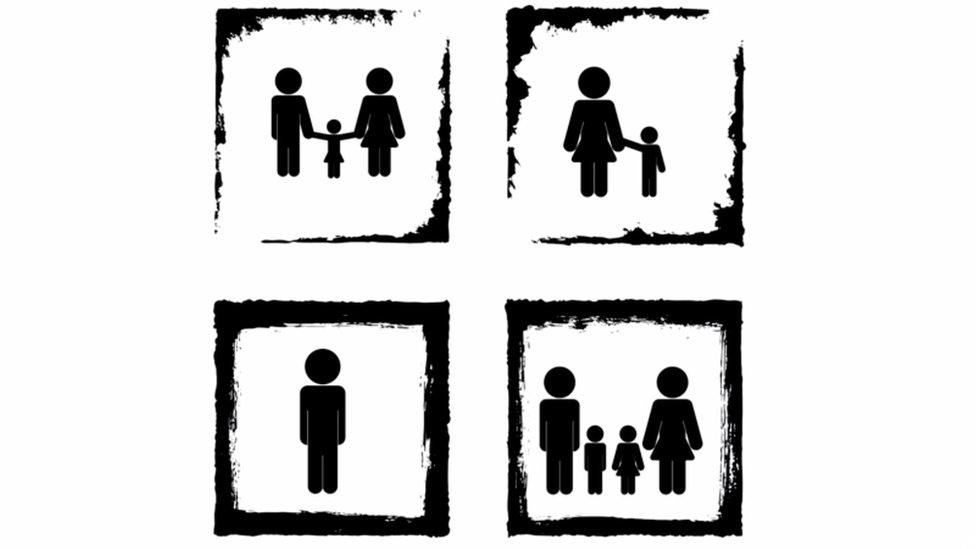Why 'gay' gestures are discrimination
- Published
"Tim" tells Clive Coleman about the taunting he was subjected to
"Tim" is a gay man who has been subjected to many isolated incidents of verbal and physical homophobic abuse in the seaside town where he lives. He has been spat at, headbutted and called derogatory names.
In late 2013, he returned some locks to local locksmith's Taylor Edwards, and after a minor altercation, the man serving him, Peter Edwards, blew him a sarcastic kiss. For months afterwards, whenever Tim walked past the shop and Peter Edwards was outside, he gestured at Tim.
"He would just make gestures ranging from what I would call quite low level. He would wink at me, limp wrist, [make the shape of a] tea pot, kiss at me and what I would class as a vile, vulgar homophobic gesture as well, inferring oral sex with a male. That was the most offensive," Tim told me in an exclusive interview.
"I was his joke I think, his source of amusement. I don't know what his mindset was. I was stressed out by it, distressed. Bit of anger in there. I suffer from depression and it contributed to a relapse," said Tim.
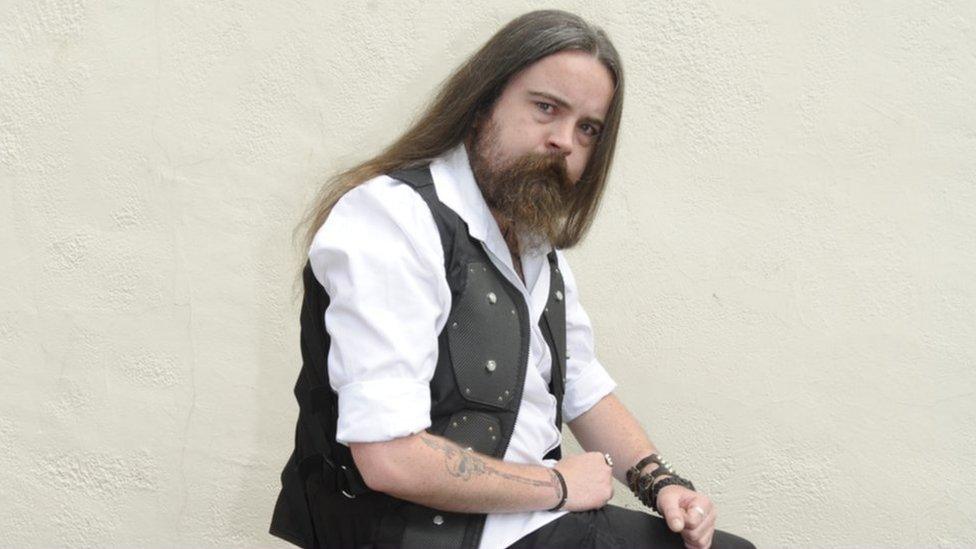
Peter Edwards made gestures at Tim when standing outside the shop
He brought an action against Taylor Edwards alleging discrimination under the Equality Act, external. It prevents anyone supplying goods and services - hairdressers, hotels, health clubs - from discriminating against customers on a variety of grounds, including race, religion, disability and sexual orientation.

The Equality Act 2010
It is against the law to discriminate against anyone because of:
age
disability
gender reassignment
marriage and civil partnership
pregnancy and maternity
race
religion or belief
sex
sexual orientation
You're protected from discrimination in these situations:
at work
in education
as a consumer
when using public services
when buying or renting property
as a member or guest of a private club or association

Even though Peter Edwards was on a work break outside the shop at the time of the gesturing, he was still deemed to be acting in the course of his employment, and Tim won, and the judge awarded him £7,500 damages.
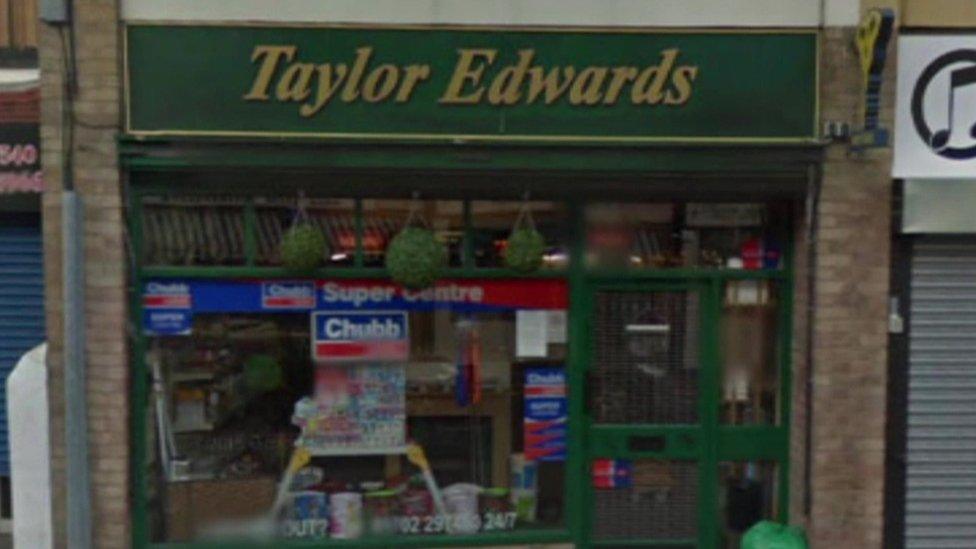
Taylor Edwards has declined to comment on the case
"For the first time, the court has said that the discrimination on the part of businesses can be by gestures only. You don't need to show that there were any words spoken. Importantly, for gay men like Tim who experience acts of discrimination that they think that they can't enforce, this judgement means that they can," says solicitor Chris Fry from the firm Unity Law, which represented Tim.
I contacted Taylor Edwards and Peter Edwards, but they declined to comment on the case.
Changing times
There was a time when limp-wristed gestures were accepted as humorous and formed a staple part of the nation's sitcoms.
The 1970s BBC series Are You Being Served? itself set in a shop, treated its camp character Mr Humphries, he who was always "free", with liberal amounts of innuendo and gesturing.
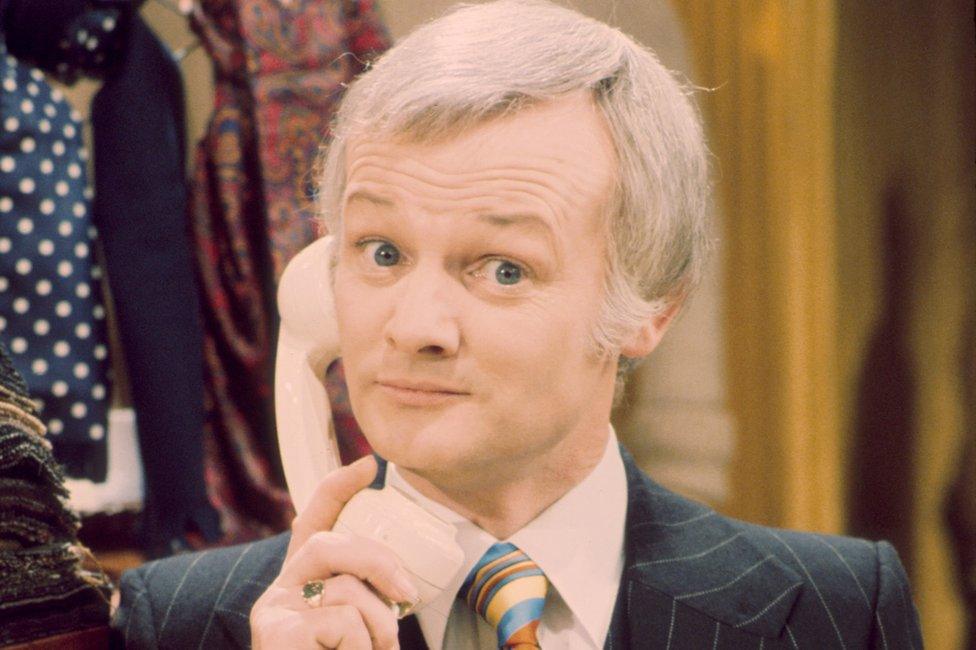
Things have moved on since John Inman's character Mr Humphries appeared on our TV screens
But Tim's case underscores that for service providers, whether they be restaurants or shops, times have changed.
Employers are responsible for the behaviour of their workforce in both words and gestures. And that's what is groundbreaking about Tim's case. The discrimination was entirely non-verbal. It was just gestures.
I went to a gay bar in central London to ask people how big an issue homophobic gesturing is for the gay community.
"I think it's a big thing. I think it still happens. I think people see it as comical in a way, and I don't think that many people know how to deal with it," one man told me.
"We've come a long way," another said, "but I think we're still not on a level playing field if you think of sexism and racism. People think those things are much worse than taking the Mickey out of someone who is gay."
'Deeply worrying'
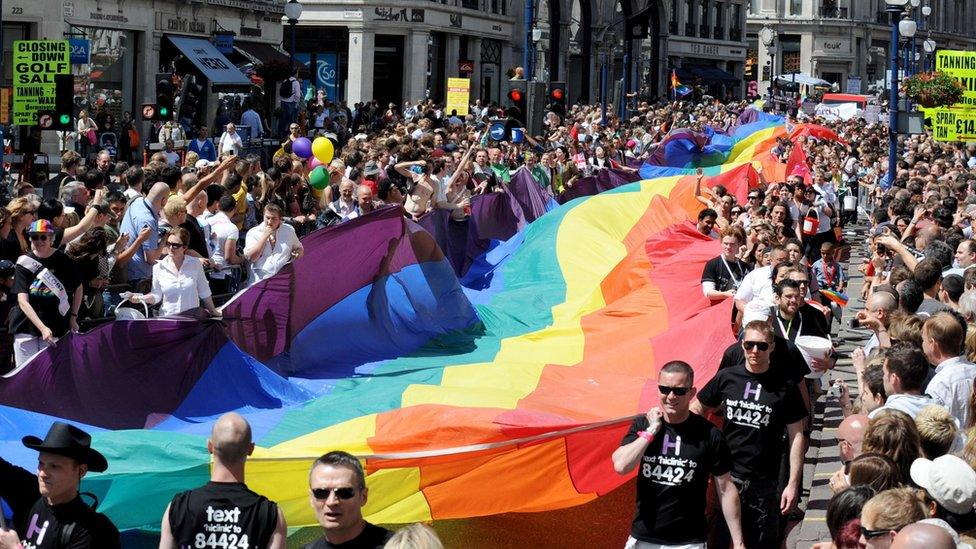
Campaigners say many LGBT people still face discrimination
According to the lesbian, gay, bisexual, and transgendered (LGBT) equality rights charity Stonewall, there were 6,000 hate crimes against LGBT people in the UK in the last year, but there are many that go unreported. And Stonewall says 75,000 young LGBT people are bullied each year simply because of who they are.
"In 2015 it is deeply worrying that many LGBT people still face persecution, harassment and discrimination whether verbal of non-verbal, simply for who they are, and that means that they are not able to walk down the street holding the hands of the person they love," says James Taylor, head of campaigns at Stonewall.
For Tim, however, the case was about standing up for who he is.
"You don't have to be a wallflower, you don't have to be a shrinking violet, you can report this kind of behaviour. As it said in the final order, it is 'unlawful direct discrimination'. I think those three words sum it up," he says.
- Published10 February 2014
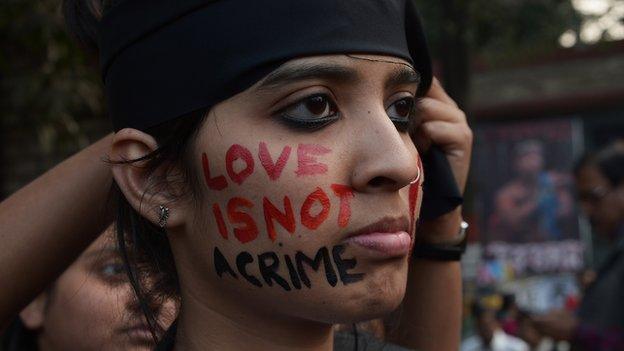
- Published2 July 2014
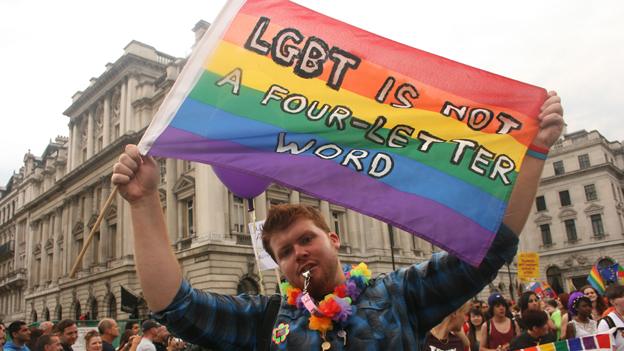
- Published25 June 2015
